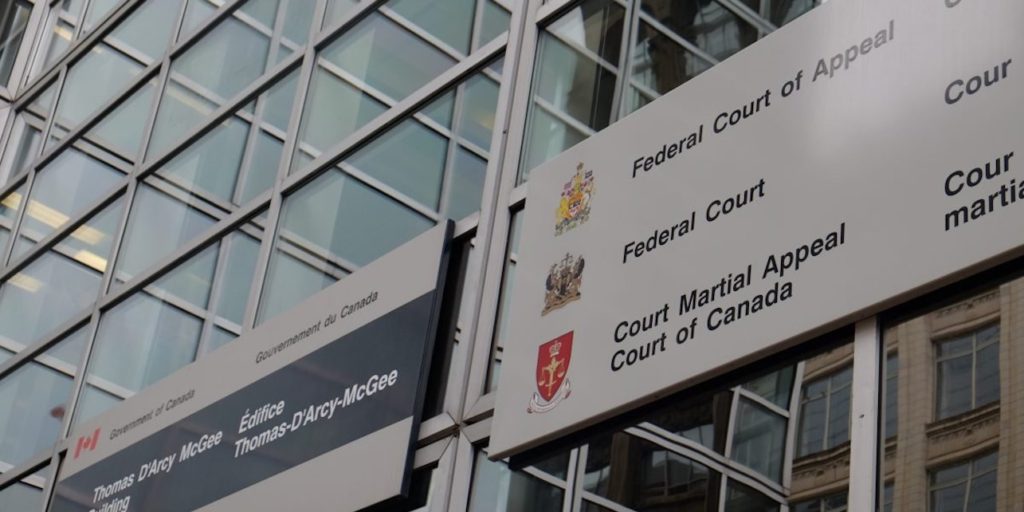- Swing and a miss for torpedo bat trademark application? - April 23, 2025
- Copyright lawsuit could create new licensing option for media industry - January 29, 2025
- Trademark law is not intended to stifle competition - November 14, 2024
By Tony Poland, LegalMatters Staff • A recent Federal Court of Canada decision illustrates the importance of moving quickly when seeking an interlocutory injunction in a copyright case, says Toronto intellectual property lawyer John Simpson.
Simpson, principal of IP and new media law boutique Shift Law Professional Corporation, explains that an interlocutory injunction is an order that restrains a defendant from engaging in activities that allegedly infringe a plaintiff’s intellectual property rights before the Court makes a final determination as to whether those activities are actually unlawful. To obtain such an order, a plaintiff must prove that it would be “irreparably harmed” if the activities continued until a final decision in the case, which could be two years away or more.
Earlier this month Simpson successfully defended RE Stats Inc. in an interlocutory injunction motion brought by the Toronto Regional Real Estate Board (TRREB). TRREB had sought an order to restrain RE Stats Inc. from accessing data in the board’s database which they alleged was infringing its copyright in the database.
Motion dismissed
According to the Court’s reasons for dismissing the motion, TRREB alleged that RE Stats and its principals had “obtained unauthorized and illegal access to the TRREB MLS system and its proprietary contents, including by circumventing and bypassing its [Technological Prevention Measures] and have downloaded, copied and retransmitted the contents of the system, including personal information contained” on it.
“TRREB describes this conduct as data scraping the TRREB MLS system to monetize its contents for commercial gain and alleges this conduct represents an infringement of TRREB’s rights, including copyright interests,” the judgment states.
The evidence before the Court was that TRREB had brought the matter to RE Stats’s attention in October 2018. RE Stats had responded that it does “not publish any reports with any data from TRREB and that all data RE Stats employs comes from its clients, which are TRREB members.”
Almost two years later, TRREB wrote to RE Stats again explaining their response had been overlooked because of confusion with a similarly named company. TRREB demanded information and threatened legal action in the absence of a “positive response.”
TRREB filed suit last August and three months later filed a motion seeking an interlocutory injunction restraining RE Stats “from conducting certain alleged infringing activities.”
Failed to prove infringement
In defending his client, Simpson argued that TRREB had failed to prove RE Stats’s activities represent copyright infringement or infringement of any other rights protected under federal law.
Justice Richard Southcott refrained from providing any analysis of the infringement issue, saying that “will have to be addressed as this litigation proceeds, with the benefit of a more fulsome evidentiary record than is presently before the Court.”
- F1 champion Hamilton spins out in trademark rights showdown
- Donald Trump and the ‘moron in a hurry’ trademark rule
- Comparing an iconic apple to a pear in a trademark fight
However, Southcott went on to dismiss the motion on the basis that TRREB had failed to prove that it would be irreparably harmed if the alleged “data scraping” continued until a final determination of the case.
“The Defendants argue that TRREB has adduced no evidence of any harm, let alone irreparable harm, that would result from the Defendants continuing to carry on business pending adjudication of this action on its merits. I agree with the Defendants’ position on this issue” Southcott writes in his reasons.
He referred specifically to the defendants’ argument that TRREB had provided no evidence of any harm over the two-year period between first discovering the defendants’ activities and bringing the motion.
‘No evidence of harm’
“[T]he Defendants make the compelling point that they have continued conducting business since TRREB became aware of their activities in 2018… [T]o the extent that TRREB is concerned about attrition in its membership or any other harm resulting from an impact on the integrity of the TRREB MLS system, there is no evidence that such harm has been identified over this two-year period,” Southcott writes.
While Simpson says he “had hoped that the judge would make a more affirmative ruling” on the copyright issue, he was satisfied with the outcome.
“I would have preferred if he had told the plaintiff, ‘You’ve got a losing case. There’s no way you’re going to win at trial because this is not about works of copyright. This is about data and information which is not protected by copyright, so case dismissed,’” he tells LegalMattersCanada.ca. “The reason why you can expect the Court is going to be reluctant to do that is that no one has put their best foot forward in this case yet. Everyone is entitled to their day in court and justice must be seen to be done.”

